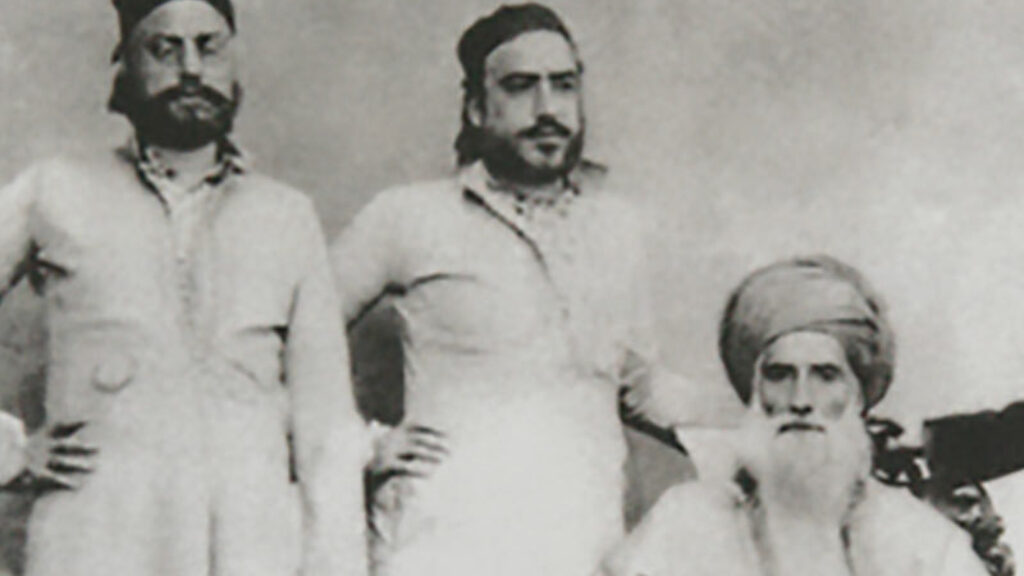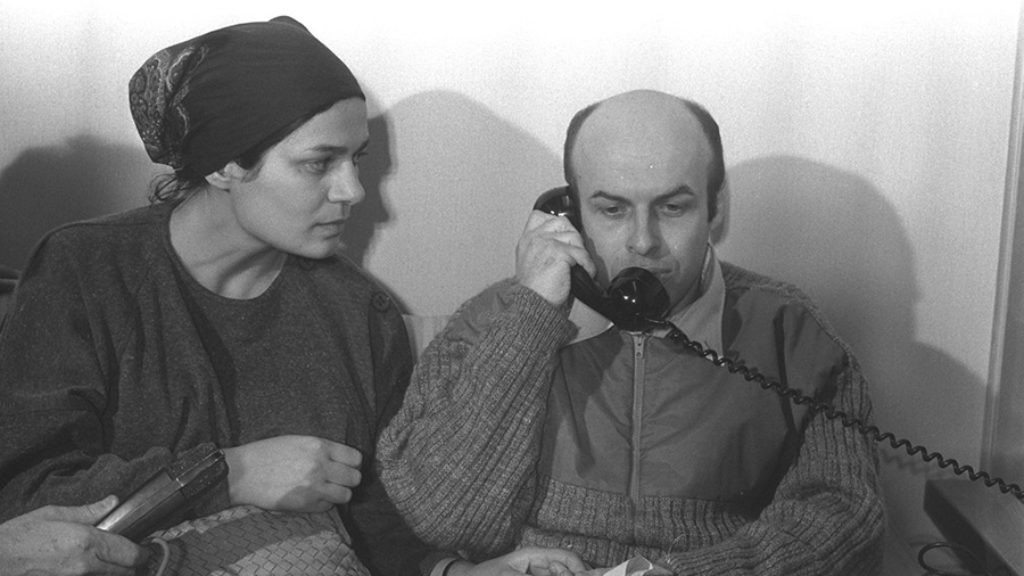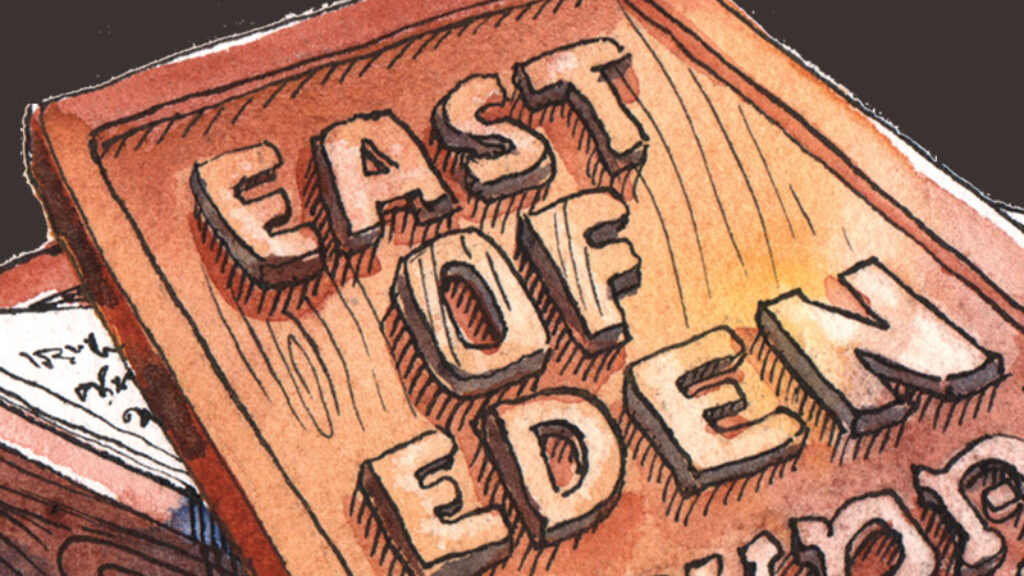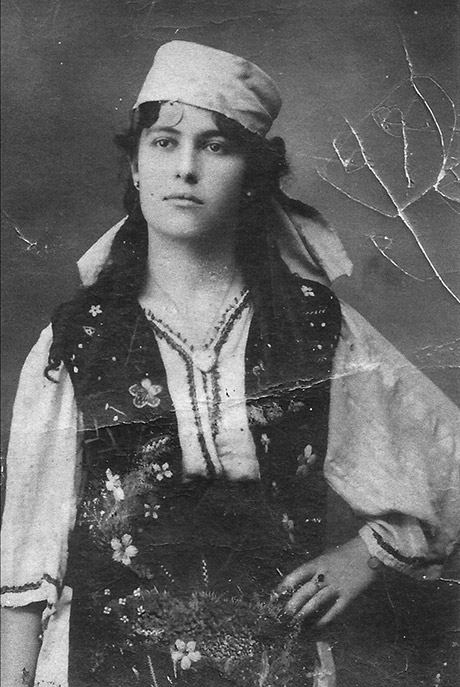Coming of Age in the Sephardi Diaspora
For well over a century, the coming-of-age novel has been central to modern Ashkenazi literature in several languages. Anzia Yezierska’s Bread Givers told the story of the perilous climb of immigrant sisters through poverty and patriarchy on Hester Street. Esther Kreitman (née Singer) wrote her despairing Der Sheydim Tants (published in English as Deborah), about the ambitious, determined daughter of a penniless rabbi father and a frustrated, bookish mother, in Warsaw in 1936; a year later, in Moscow, Der Nister (the pen name of Pinkhes Kahanovitsh) published his masterful Yiddish-language Di mishpokhe Mashber (The Family Mashber), a fantastical, sprawling exploration of the tribulations of brothers confronting diverging paths of temptation and a family on a catastrophic, riches-to-rags course. These are just a few foundational works of a long literary tradition that extends through Bellow and Ozick and Roth to the present moment.
Sephardi coming-of-age stories have been scanter in number, and they are a more recent phenomenon. A disproportionate number of them are from North Africa and Egypt, from which their authors emigrated in the latter half of the twentieth century. Albert Memmi’s 1955 novel, The Pillar of Salt, mapped the experience of in-betweenness felt by Middle Eastern Jewish youth such as Memmi who came of age under colonial rule. Several lyrical memoirs, family histories, and novels have followed, the bulk of which chronicle Egyptian Jewish experience, including André Aciman’s Out of Egypt: A Memoir, Ronit Matalon’s The One Facing Us: A Novel,Lucette Lagnado’s The Man in the White Sharkskin Suit: A Jewish Family’s Exodus from Old Cairo to the New World, and Orly Castel-Bloom’s Ha-Roman Ha-Mitzri (An Egyptian Novel).
By contrast, the Judeo-Spanish heartland of the Ottoman Empire has not so far proven as fertile a terrain for literary inspiration. Rather surprisingly, it has recently spawned several television series, including Netflix’s Kulüp (The Club) and The Beauty Queen of Jerusalem and Apple TV’s The Scent of Rain in the Balkans.Yet, until now, this dynamic world has lacked a defining coming-of-age novel—at least in English. (The English translation of Gordana Kuić’s Serbian novel, upon which Apple TV’s series is based, is long out of print.)
Elizabeth Graver’s Kantika, a remarkable, lyrical work that conjures and embellishes the journey of the author’s maternal grandmother from Istanbul to Barcelona, Havana, and New York, is the novel that many of us have been waiting for. Itis a beautiful work of historical fiction that tells the epic story of a modern Sephardi family with sensitivity, intimacy, and cultural responsibility.
Kantika feels familiar to me, not only in its evocation of something like my own family’s history but in its many parallels to the historical narrative I reconstructed a few years ago in Family Papers: A Sephardic Journey through the Twentieth Century. Yet as a novelist Graver can reach, or at least imagine, inner life and experiences to which a historian has little or no access, because the source material isn’t there. Graver delves into the interior worlds of her protagonists, bringing to crystalline form private expressions of loss and reinvention, despair and success, thwarted ambition and sexual pleasure.
Kantika’s protagonist, Rebecca Cohen, is the daughter of parents who are so prominent in the Istanbul Jewish community that they hobnob with foreign dignitaries. Her world is intensely Judeo-Spanish, but in the way of late Ottoman society, it is also socially fluid. She attends a Catholic, French-language school and her mother tongue, Ladino, is one among many that the family speaks.
Rebecca is a sensitive child who is drawn to visit her father’s disoriented, superstitious, yarn-weaver of a first wife despite the fact that she and her dying mother terrify the girl. When the older woman dies, Rebecca is deeply shaken:
For her part, Rebecca feels sadness, coupled with a failing of belief, because how can you live in a world so peopled and storied that spoons have spirits and girls have wings, but then your own mother dies and you simply cannot find her, not in a spoon, not in a rug, not anywhere, and the girls who used to visit are not your daughters, not even your nieces, and don’t come see you anymore, and the only man who ever married you is married now to someone else.
It is a precocious rumination on loss that will, in some ways, foreshadow her own.
For the Cohen family’s Istanbul idyll has a fatal flaw. Rebecca’s father, Alberto, once dignified and wealthy, has gambled away the family’s savings and become a drunk. He is now forced to approach the Jewish Refugee Relief Committee he once patronized as a supplicant, hoping they will help him take his family to France, England, or North America (he has no interest in Palestine and regards the Zionists as dangerous messianists). The community is financially depleted and focused on helping Jewish émigrés get legal papers to travel and find new jobs and lives abroad, not dissolute local millionaires who have squandered their fortune and good will. They eventually offer to help place Alberto in a position as a janitor of a tiny synagogue in, of all places, Barcelona: “Alberto is old. Soon he will turn seventy and his youngest son, Josef, only ten. Old, drunk, tired, confused, sentimental, disappointed, though he knows he should be grateful for the opportunity.”
And so, in 1925, Rebecca’s family improbably finds itself in the country that, five centuries earlier, expelled their ancestors. They are grateful, at least, that the language is familiar, close as it is to their own Ladino. Rebecca, a talented seamstress, sets out to be a pieceworker. She quickly learns that she must dress down to find a job in a neighborhood poor enough to hire a foreigner—and then Catholicize her name to keep it. Rebecca’s mother, Sultana, also learns to survive and even thrive on the air of Barcelona. She prepares tea and biscochos for other recent Jewish arrivals while scouting for a potential match for her daughters.
Alas, Alberto wilts and rots in his new home, much like the suitcase of bulbs, seeds, and plant clippings that he brought from his once beloved Istanbul garden. Considering her husband, Sultana thinks:
You’re a cranky old man. . . . I go out on the streets and smile at strangers while you stay locked inside these walls. I still look out at the world, and up to God.
But a wife did not address her husband in this way, and anyway, she didn’t have it in her to be cruel. Her husband was still a good man, trying to protect his family, but she wouldn’t allow him to infect her with fear.
One day, fed up, she dumps Alberto’s suitcase of festering flora in the courtyard—an act that jolts him awake both to his situation and to his wife.
When a twenty-four-year-old Rebecca is matched with Luis, a young Turkish Jew, she agrees to marry him, not because she loves or lusts for him but because he seems to more or less fit the bill:
He is neither too old—just six years her senior—nor too young. He is Sephardic, from Adrianople in Eastern Turkey, where his parents still live. He has (Sultana asks around) a job. More to the point, la ija del Judio no keda sin kazar, the daughter of a Jew does not remain unmarried.
Unfortunately, marriage only dulls her affections further, for Luis proves to be what can only be called simple. He is incurious, unable to hold a job, and emotionally unappealing. Rebecca likes the sex, but she has not been warned about Luis’s flaws, nor can anyone prepare her for the fact that he will abandon her to search for jobs that never come, returning briefly enough to annoy and long enough to impregnate his lonely bride.
In the most devastating chapter of Kantika—and perhaps the only one to really strain historical and logistical credulity—Rebecca takes her two young boys on a Sisyphean journey in pursuit of her errant husband, only to be crushingly disappointed. Defeated, disoriented, she laboriously makes her way back to Spain, now a single mother.
But not for long. Her sister Corinne writes from New York to propose a match with the widower of Rebecca’s closest childhood friend who has died in childbirth. In his photograph, Sam “is no movie star, his chin a little weak and jawline soft, but he is handsome enough, with a thoughtful air about him, and well dressed.” The prospect of a new life is too good to turn down, and soon Rebecca is sailing to Cuba—a transit point where the pair, if willing, can marry and journey into the United States as husband and wife. Havana is a reverie, and when Sam expresses tenderness, “Something clicks inside Rebecca then, the bobbin settling into its slot in the sewing machine.” The pair are quickly in bed, and marriage follows with equal speed. But like Luis, Sam turns out to have his flaws and secrets too. The marriage will last, but it won’t be a reverie.
Kantika, which means song, begins with “the unspooling thread” of Rebecca’s girlish voice singing “wordless tunes, nonsense sounds and ballads, in Ladino, French and bits of Turkish, Hebrew, [and] Greek” in Istanbul and ends with her learning that she is about to become a grandmother in America. Elizabeth Graver has written an elegant coming-of-age story that is also an epic of the Sephardi diaspora, spanning generations, wars, and continents.
Suggested Reading

Crazy Rich Sephardim
For a time, Shanghai soared along with these unusual Ottoman Jewish émigrés, the Sassoons and the Kadoories.
Singing Gentile Songs: A Ladino Memoir by Sa’adi Besalel a-Levi
Sa'adi Besalel a-Levi's memoir of life in 19th-century Salonica provides a rare and intimate glimpse into a lost Ottoman Jewish world. Sa'adi was an accomplished singer and composer and a printer who helped to found modern Ladino print culture. He was also a rebel who accused the leaders of the Jewish community of being corrupt, abusive, and fanatical. In response, they excommunicated him—frequently, capriciously, and, in the end, definitively—though with imperfect success.

The Stakes in the Middle East
Reformers and democrats are the real hope for a future of peace, liberty, and stability in the Middle East. This historic moment presents the West with a remarkable opportunity.

The Most Important Word in the World
For a moment, a literary giant and talmudic genius sparred over the implications of a biblical phrase.


Comments
You must log in to comment Log In